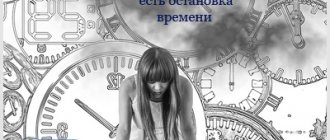Integrity is a state in which consciousness and the unconscious are in mutual and harmonious agreement. In psychology, the idea of integrity is directly related to the union of two conflicting opposites. In his theory, C. Jung defined it as the goal or purpose of human life, corresponding to health and at the same time representing the potential and abilities of a person.
The process of interaction with the environment or other people can hinder or, on the contrary, contribute to the emergence of integrity, and in some cases the thirst for its emergence can turn into an escape from psychological conflict for the individual.
A holistic personality. Description
And someone who is firmly confident in himself, knows what he wants, and accepts everything around him as it is, and does not try to resist fate, can call himself such a special person. A person respects everyone’s choice, including his own. We can say about such a person that she looks at things with a realistic look and draws appropriate conclusions, even if they contradict external pressure. This is a person whose inner world is harmonious with the outer. Self-confidence and peace of mind accompany him in life.
Material and spiritual flows are in balance with each other. When a personality is holistic, it is guided by its own internal compass—truth. Man is part of the Universe and feels unity with the world. It is filled with vital energy. He shows interest in the world, realizes his talents and activates his internal resources. The personality is filled with vital energy thanks to energy channels.
Basic Characteristics of a Whole Person
Photo by cottonbro: Pexels
- Self-love and self-respect.
This is not about narcissism, but about healthy self-love. When a person is a support, and not looking for someone to lean on. Respect for your desires and needs. Acceptance of all strengths and weaknesses.
- Respect for other people.
This is not about trying to please others and indulging them in every possible way. It is important to be able to act without violating the boundaries of another person, respecting his wishes. The ability to care for others without harming yourself or them. Developed sense of empathy.
- Inner peace.
A holistic person, even if he experiences anxiety and negative emotions, is able to find balance and cope with every difficulty. To do this, he does not have to expend a lot of energy. For him, a harmonious state is a necessary component of his personality.
- Adequate self-esteem.
A clear understanding of one’s value helps a person to give himself a worthy assessment (of his qualities, appearance, inner content).
- A realistic view of the world around you.
The ability to see the whole picture, not getting hung up on little things, the ability to isolate what is necessary and important.
- Your own clear position and opinion on any situation.
Opinion does not change under the influence of certain factors (surrounding people, circumstances). A person calmly expresses his thoughts and is confident that he is right, because this is his clear, unshakable position, based only on his convictions.
- Lack of internal conflict.
An integral person also does not rely in his actions on the opinions of others or any norms of society. He is able to allow himself to do as he wants.
- Natural behavior.
The person behaves at ease and easily, and is calm in communicating with any person. Not withdrawn and not uncomfortable. A holistic person is so harmonious that he attracts others like a magnet.
- The ability to manage your energy.
The ability to not waste your time and energy. All this comes from a clear understanding of your needs and goals.
- Feeling of safety in the outside world.
For a holistic person, complete trust in the world and circumstances is important. He knows the fact that everything that happens to him is the best scenario specifically for his life. He is safe and calm in any conditions.
Education
The holistic formation of the individual occurs due to the fact that a clear awareness of everything that is happening comes. Each lesson brings something necessary for development into a person’s life. This person also allows herself to experience any emotions and accepts everything, even the dark sides of her character, with the confidence that all this will teach her something. Such people know how to enjoy every moment in life, feel inner freedom, as they look at the world from the position of God. And we can say with firm confidence that these individuals lack excitement and experience.
Opportunities open up for them for constant development, learning everything new, and life itself becomes a great adventure. A person emits energy such as joy, warmth and light into the outside world. He wants to share all this with the surrounding society.
Seika-Tanden
This happened when I had been practicing aikido for some time. At one time, I read in the books of V. Zhikarentsev, who devoted many years to this art, about the presence in the human body of a center of gravity - Seika-Tanden - which is located several fingers below the navel. Connecting with it, acting “out of it,” gives a person colossal physical and other capabilities. The ability to connect with it is one of the components of the art of Aikido.
So, during the classes I was able to feel and connect with this center several times. While performing the training elements, I could not manage to “knock down” my partner - a healthy guy whose weight was twice as much as mine. The trainer explained to me several times how to connect with this center, and when I succeeded, my partner simply fell like a blade of grass, without any physical effort on my part. The art of Aikido itself is based on hitting the enemy without applying physical force. And many techniques are associated not only with technical execution, but also with the work of Seika-Tanden. In general, such moments need to be felt...
What is integrity if we consider this concept from the perspective of this information? This, among other things, is the ability to connect with your body, your energy and its elements, knowing which one and why.
When does formation begin?
The formation of a holistic personality occurs only when a person thinks that something in life does not suit him. This also happens if an inner voice tells him that he is going down the wrong path. Perhaps a person does not even suspect that it is a matter of integrity and that he should pay attention to his inner world.
Often such a person does not take into account all the components of his essence, mainly only his appearance, character or physical form. At the same time, she forgets that a person is a combination of mental, energetic and physical processes.
Definition
Integrity in psychology is a concept that implies the internal unity of an object, the interconnectedness and interdependence of its parts. Describing the structure of the human psyche, S. Freud singled out the “conscious self,” sexuality and narcissism as the main components that give integrity to the psyche.
The Swiss psychoanalyst and psychologist Carl Jung defined the concept of the term “Self,” which occupies a central part in his theory, as the subject of the integrity of the human psyche. “Self,” according to Jung, predetermines all human life activities aimed at achieving the integrity and unity of its constituent parts. Continuing the psychoanalysis of S. Freud, his student described the self as a central, holistic archetype, including not only conscious, but also unconscious mental being.
The self is considered by Jung as the center of a holistic subject, covering both the conscious and unconscious spheres of his psyche. The self manifests itself in a variety of personified forms: animals, human, godlike, and also non-personified: in the form of lakes, mountains, trees.
The self (integrity) in Jung's theory is the container for all the contradictory disparate elements of the psyche and assumes that it will subsequently acquire integrity or be perceived as a whole.
In his work, K. Jung defines selfhood as an unconscious “image of life purpose”, a person’s realization of his integrity and individuality, by his own will or against it.
In the theory of F. Nietzsche, integrity represents humanity, manifesting itself through difference, while the individual was considered in his theory as an infinite and highest value.
Integrity in Psychology
In the Dictionary of Biomedical Ethics, the concept of “integrity” is a principle of bioethics put forward by European scientists to designate a concept that ensures both physical and mental identity of an individual with himself.
Responsible for personal self-identification, it should not be subject to manipulation or destruction and is directly related to the individual’s life path, as a way of reflecting the most important life events in memory. Doctor of Biological Sciences Arsanausova A.Yu. notes that some medical interventions contribute to disruption of integrity.
Knowing this, the specialist notes that when they are carried out, it is necessary to protect the psychophysical integrity and minimize its possible damage by introducing ethical and legal frameworks governing the conduct of medical and surgical interventions aimed at changing the genetic structure of the individual. According to the specialist, all legal regulations relating to transplantation activities should also be subject to change.
Author of the “Dictionary of Practical Psychologist” Golovin Yu.S. defines integrity as a principle of perception, consisting in the ability of any object to perceive any object or spatial situation as a whole, even if its individual parts are currently hidden from view
Defense Mechanisms
First of all, the holistic personality is considered from the perspective of such a science as psychology. Here the person herself is the main object of study in this area. The personality is considered from the social side, its behavior in society, the presence of individual properties and character traits. It is formed under certain beliefs and principles realized by the person himself. Holistic personality psychology implies a certain defensive reaction. There are several such mechanisms in nature, and they are triggered when something threatens a person. Some personality traits can be classified as a defensive reaction, such as:
- substitution, when aggression received from someone on an individual is transferred automatically from her to another person;
- repression - a person forbids himself to perceive those thoughts and feelings that caused suffering, forgetting or not knowing that all this remains in the subconscious, which is not good for her;
- projection - when one imposes his irrational thoughts on another or several people, thus shifting his shortcomings or shortcomings onto others.
A person personally chooses and adheres to them. Thanks to integrity, he gains psychological stability at a high level when there is a choice between achieving goals and proposed values. Not everyone is given the status of a complete person. It all depends on the characteristics of upbringing, on the relationships in the family where a person grew up, on interaction with the environment and on its influence. People are not born with a complete personality. Its formation depends on the interaction and influence of the external environment.
Integrity in my understanding
Even before starting my mini-research, I tried to formulate my definition of human integrity:
Integrity is the harmony of all levels of personality - emotional (psychological), intellectual, spiritual and physical. Integrity implies both the harmony of each level separately, that is, a person’s psychological state is in order and he is developing, and the harmony of all levels among themselves - there is no conflict between the spiritual and the physical, the intellectual and the emotional. In addition, what is indicative for me is the person’s sense of his own integrity.
This is where I started, and what I came to – more on that a little later. In the meantime, I want to introduce you to the reasons why I strive for integrity:
If there is no integrity, a person is haunted by an obsessive feeling of lack of something, which he tries to compensate for. Means of compensation can be different: alcohol/drugs, religion, spiritual practices, etc. The most undesirable way to compensate for one’s lack of integrity is to look for the elements missing for harmony in someone else. This is a rake that I have stepped on more than once - attempts to gain integrity at the expense of another person, and it works, but only as long as this person is nearby. It becomes a crutch, with the help of which it is easy to go through life, but if you take this crutch away, I find myself still just as lame. How then to walk? I have repeatedly noticed that when my goal is accepted at all levels, achieving it requires much less effort and has a much greater chance of being realized. If some idea is accepted by me only on a spiritual level, but intellectually and emotionally I do not agree with it, a conflict arises. Then the “offended” parts have to be persuaded (waste of resources), and they can also put a spoke in the wheels, fueling the internal conflict even more
It is important for me to understand the criteria for determining desires that are accepted in their entirety, at all levels.
Power model of development
Personality can develop according to two models: strength and the model of internal harmony. In the first case, beliefs are rigid, and they are defended in open conflict. Moreover, the person is not going to “give up his position.” As a result, the personality breaks down entirely, which cannot be said about the harmony model. Where there are not only beliefs, but also morals and spiritual values. A person is ready to sacrifice himself and his life to his beliefs.
The power model can be attributed more to a man. It is not easy for him to accept external laws and demands with control. Although the main thing for him is to agree with them. After this happens, the man monitors all this himself. He came to this.
What is integrity?
Integrity is an internal balance that is manifested by a person saying, thinking, doing and feeling in the same direction. Integrity is not a result, but a process. It includes upbringing, personal life, professional growth, social circle, dreams and goals. All these components are the blades on an airplane propeller.
As soon as one breaks down, life begins to take strange turns. An accident does not happen, but the plane loses altitude, goes into standby mode or even goes to an alternate airfield
It is important to track the moment of the fall and understand how to fix your life. Don't start another one, don't break yourself, don't look for the mythical missing half
Become one with yourself.
When you think about your own personality, your eyes, against your will, begin to snatch out the titles of useful articles. Many begin with the words “how to get rid of” or “how to avoid.” Yeah, the reader thinks, that means I have something extra and it needs to be cut off as unnecessary. But you immediately come across those that begin with the words: “how to find your soul mate” or “how to get it.” The reader is perplexed: So, am I already missing something there? So sculpt or cut? It’s worth doing both, but with a sense of awareness.
Mindfulness today has become not just a popular topic, but also a meeting place. Why does it affect our personality so much? Awareness helps answer the question at every moment of life: who am I? where am I going? how and why am I going? It is especially useful to seek answers in moments when you feel an internal imbalance. After all, it is precisely this that leads to the loss of integrity. Practices help to achieve awareness.
Model of internal harmony
A holistic personality, located in a model of internal harmony, is also supported by internal flexibility. That is, when a person safely accepts the environment as it is, and it accepts him.
The presence of harmony within can be defined as the absence of conflict between the internal parts of the personality, as well as only a positive worldview. A person realizes and accepts that understanding others and oneself should come first. Moreover, he himself strives to notice only the strong and positive sides. Such people do not engage in self-accusation. Internal flexibility helps to adapt for some time to the harsh demands of the external environment, allowing you to use every opportunity to return to your original state. This model is mainly typical for the fair sex.
Human integrity: different views
And now a few points of view on human integrity that I consider worthy of attention:
- Human nature is incomplete and fragmentary. This is where our constant desire for the one thing that we are not comes from. The desire to gain integrity is the engine of personal evolution; feeling our incompleteness, we can make one of two choices: remain torn, fragmented, or gain the fullness of our own existence, revealing its (that is, our) limitless potential.
- Freud showed that man is a fundamentally incomplete being. In it, various programs are running simultaneously, which pull a person in different directions. “Freedom from conflict, integrity and homogeneity of personality,” writes his daughter Anna Freud, “are thus the impossible ideals of human culture.”
- The third approach, based on the works of Jung, does not deny the presence of opposing programs in a person, but viewed them as complementary to each other. As man evolves, he frees himself from fundamental extremes, extracts himself from the concept of “black and white” and recognizes his integrity beyond duality.
- A person is holistic, i.e. closed, complete, unable to develop.
- At birth, every person is whole, but later he loses his integrity. The further development of man is the essence of the desire to restore integrity, to find spiritual harmony in the unity of all parts.
- A person’s desire for integrity is natural, emanating from the depths of his essence, but may be unconscious. Refusal to move towards integrity is a betrayal of one’s essence, entailing internal destruction. This often happens when a person feels his pseudo-integrity.
These are just a few of the many views on human integrity, but they are already quite enough to make your head spin. What conclusions did I draw:
Your own sense of integrity may have the prefix pseudo-, so you should trust it with caution. The desire for integrity is the driving force of human development. The feeling of disunity and fragmentation of personality comes from being locked in a dual vision of “good and bad.”
Unintegrated personality. Description
If a person does not have goals, constantly contradicts both everyone and himself, does not know how to make decisions, or shifts them to others so as not to bear responsibility for them, then such a person can hardly be called holistic. For these people there is no guideline in life; their companions are self-doubt and low self-esteem. The consequences of all this are a constant change of personal beliefs and disappointment in everything.
Why is this happening? Perhaps upbringing or the surrounding society played a role here, which introduced limits. Or maybe situations that caused pain and influenced a person’s rejection of himself. Then the feelings are prohibited in order to avoid suffering in the future. The connection with the soul is lost, and the mind takes responsibility. Surely many have been in a situation where betrayal, disappointment, stress or severe grief led to a loss of integrity.
But not everyone, being in critical conditions, retains their qualities as an integral personality and remains unchanged in relation to their life positions. It all depends on the temperament and type of person. A person who does not want to recognize her talents, wants to be successful, but does not take any steps for this, sees only shortcomings in herself and in others, experiences self-hatred to a greater extent than love, the definition of “integrated personality” is not suitable. A holistic person understands his purpose. He follows inner guidance in a given situation.
How to find integrity? Simple exercises from psychologists
There are two ways to achieve integrity
– this is serious work on yourself or therapy with a specialist. To get started, we suggest you try three psychological exercises.
Integrity Exercise #1
Write 10 of your qualities, the most obvious ones that come to mind first. Then write 10 qualities that are completely opposite to them.
For example: “I am good-natured” and “I get angry over trifles.”
Now get to know your real self, the second list is you too. Recognize and accept these traits in yourself.
Exercise No. 2
Write 5 qualities in which you are better than others. Then 5 more qualities in which you are worse than others or think that someone is superior to you in this.
Now remember that each person is individual, each has his own path, purpose and destiny. There is no point in comparing who is better and who is worse. You will not become as talented an artist as your friend, and he will never understand astrology the way you learned.
Get back to yourself everything that you constantly project onto other people - both talents and shortcomings.
Exercise #3
Allow yourself to be different, to be an imperfect person.
Catch yourself every time you do something not spontaneously, but to please others. Notice situations in which you are trying to appear to be someone you are not, to embellish yourself.
Become your own controller, monitor habitual behavior scenarios and carefully correct them. Observe and work on yourself for at least 21 days, and preferably 3 months - that’s how long the brain needs to form and strengthen new neural connections - new habits.
Become a whole person
It’s not easy, it’s a lot of work that requires constant self-development and discipline. But this work will bring you many amazing discoveries about yourself, and will gradually change your life beyond recognition.
Do you consider yourself a whole person? Write in the comments, let's discuss!
Are you interested in getting a new profession and learning astrology for beginners ? Start learning Vedic astrology now! At Lakshmi-Ameya Institute you will gain knowledge that will help you improve your life and the lives of your loved ones. And strology - studying on your own will not give you what you will get by studying with experienced mentors. Our teachers are hereditary astrologers, Gurus from India with extensive experience, having a scientific degree in astrology. We give you knowledge and practice, teach you how to create a personal brand, tell you how to promote yourself on the market, help you find your first clients and change your life. We provide not only online training in astrology , but also other Vedic sciences: palmistry, numerology, Ayurveda.
Our students have the opportunity to take part in various activities, offline meetings, conferences and other projects of the Institute: Offline conferences and meetings with teachers (see the report on how we became the best astrology school 2020 based on the results of a prestigious award) ,
Spiritual tour to India , Astroclinic , Seva - food of the world , Karmadel , Astrobattle .
Tips for Finding Wholeness
A person who is not in integrity cannot see his true state, it is difficult for him to do this. To do this, you need to look into the soul, ask yourself about what is needed for the holistic development of the individual to come into his life.
Restore connection with your inner world, open to the light and all positive energies. You need to strive for this and sincerely want it. When a person establishes contact with his soul, the necessary circumstances, bright people and opportunities come into his life. The main thing is to notice all this and be grateful for everything. Usually a teacher or mentor comes into life and brings him to the level of awareness.
When everything that comes into life is accepted as something that was planned by the soul, as some kind of experience or game, then unity with the world is restored. Cleaning the subtle bodies and working with all internal blocks will help you achieve a complete revival of integrity. The highest source of energy will bring all aspects into harmony with each other using powerful vibrations into a single whole. You can also reach this state in a different way.
A person must express himself in creativity. Accepting responsibility for your life, trusting the world and turning attention inward - this will also help restore a person’s integrity. The readiness and desire to feel this state must be present. Do not contradict anything or anyone. Everything should happen easily and naturally. Meditation and proper breathing will help you achieve unity. Afterwards, the person himself will be able to freely enter the common flow with higher energies. Entering a state of integrity has no boundaries; a process of unification with the Universe, nature and the right energies occurs.
Signs of incompleteness of one’s “I”
You can determine that you have lost your integrity by the following signs:
- You don't have enough energy
- The opinions of other people have become important to you
- You no longer feel supported in yourself
- You demand care and support from others
- Don't understand where to move next
- You have a lot of doubts
- Distrust of the world
- Difficult to make a decision
- Reluctance to take time for yourself
- No desire to develop and grow
- Feeling irritated
- Difficulties in relationships with people
- There is a desire to close
- Sometimes there is anxiety inside
Reasons for loss of personal integrity:
- Psychological trauma in a child in childhood. The child is helpless in front of adults. They scold him, ridicule him, punish him unfairly, and reject him. In this regard, the child hides very deeply all the best manifestations of his personality. More often than not, this was the only way out to preserve my sanity.
- Depreciation and criticism from important people. A person tends to trust and believe the most significant and dear people. Sometimes, he believes them more than himself. Without skimping on criticism and devaluation of actions and deeds, relatives and loved ones push a person’s talents far.
- The desire to conform to stereotypes. A person tries to follow established rules in society, afraid to be himself.
- Reluctance to accept yourself. It is very difficult to accept yourself as you are.
- Envy of other people's successes. Others are always better than themselves.











